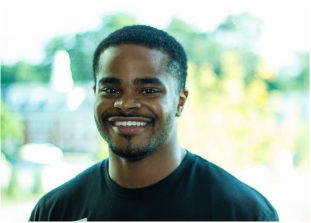The C.S.C.S (Certified Strength and Conditioning Specialist) from the NSCA (National Strength and Conditioning Association)
by Justin Taylor, BS, CSCS

This is perhaps one of the most important blog series you’ll read involving the fitness industry. That’s because certifications seem to be the only thing regulating the ethics behind the fitness industry. How would you feel if your trainer or coach lacked the valuable resources and education to provide you with safe and effective coaching?
Perhaps you are a recent college graduate or just looking to switch careers into the fitness industry but you are not quite sure where to start. I suggest before you start your journey into the fitness industry you should have an end goal in mind that you are constantly striving towards and that goals should direct your path.
Before I give you my personal recommendation on certifications, it’s important to know that the sector of your business and demographics of your clients will dictate which certifications you should have. Some will carry over across different work sectors.
Examples of Fitness Work Sectors
- Commercial Gym
- Health Club
- Corporate Wellness Center
- Health and Wellness Center
- Athletic Training Facility (High School, Collegiate, and Professional)
- Private Gym ( Personal Training, Boot Camp, Crossfit and Sport Performance)
Now on to the good stuff right? You want to know which certification you should have in order to get started, well, here we go!
One of the top certifications is the Certified Strength and Conditioning Specialist (CSCS) through the National Strength and Conditioning Association. The CSCS is a required certification for Collegiate and Professional Strength and Conditioning Coaches. I have also found it to give me an edge with Personal Training and has allowed me to differentiate my skill set from others. In order to become a Certified Strength and Conditioning Specialist it is required that you have a Bachelor’s degree which distinguished this certification from many others such as those for Crossfit or Personal Training. The National Strength and Conditioning Association (NSCA) offers great scientific exercise research in addition to virtual practical testing to see if you can access real world training issues.
Pros
- Versatility: Allows you to work with a variety of populations such as general, youth, athletes and elderly because of the variety of information involving human bio-mechanics, bio-energetics, nervous system development and periodization (If any of this terminology sounds foreign to you I’d suggest you do some additional research).
- Better Job Placement: Employers tend to perceive higher value with the CSCS because most who obtain them have a Bachelor’s or Master’s in an exercise or fitness field
- Higher Education: National Strength and Conditioning Association offers valuable continuing education as you grow your career
Cons
- Exam Prerequisites: Must hold a Bachelor’s degree or currently be enrolled as a college senior at an “accredited” institution
- Difficulty of Test: Depending on your background and level of education at your university, the C.S.C.S. exam may perhaps be one of the most difficult to pass because of the amount of knowledge required
Now here’s the truth about certifications.
Certifications exemplify your competence when it comes to health and sciences involving anatomy, physiology, nutrition and practical exercise training. Despite having a degree in Exercise and Sport Science, I struggled to find employment from an “accredited” organization. Training professionally without a certification is a sure sign of negligence and could lead to serious legal issues in the wrong circumstances. Therefore you are obligated to display your level of competence to future employers and clients to start a successful career.
Justin Taylor, BS, CSCS
www.justinobriantaylor.com, Owner
“The views, opinions, and judgments expressed in this message are solely those of the authors and peer reviewers. The contents have been reviewed by a team of contributors but not approved by any other outside entity including the Roman Catholic Diocese of Raleigh.”

